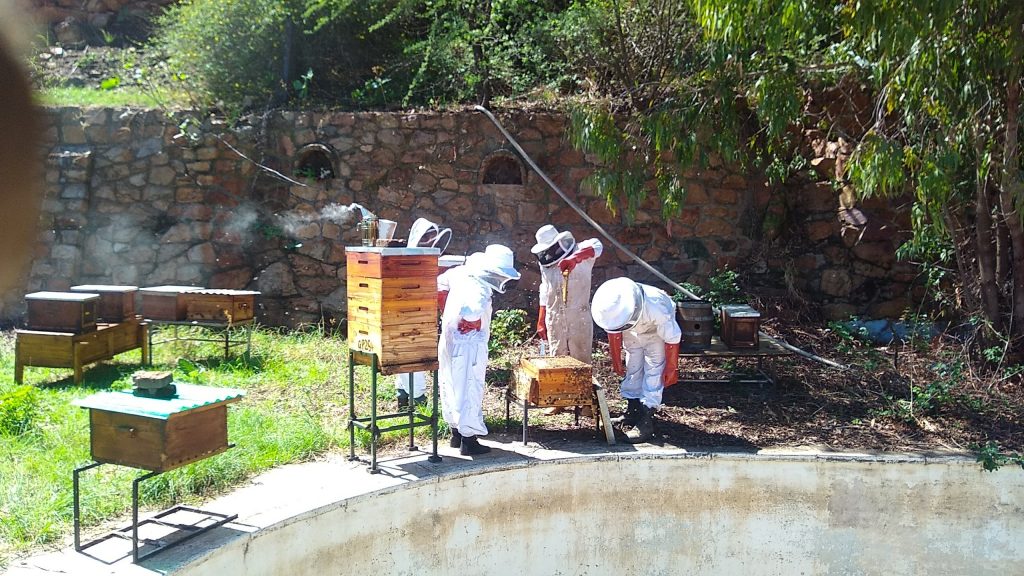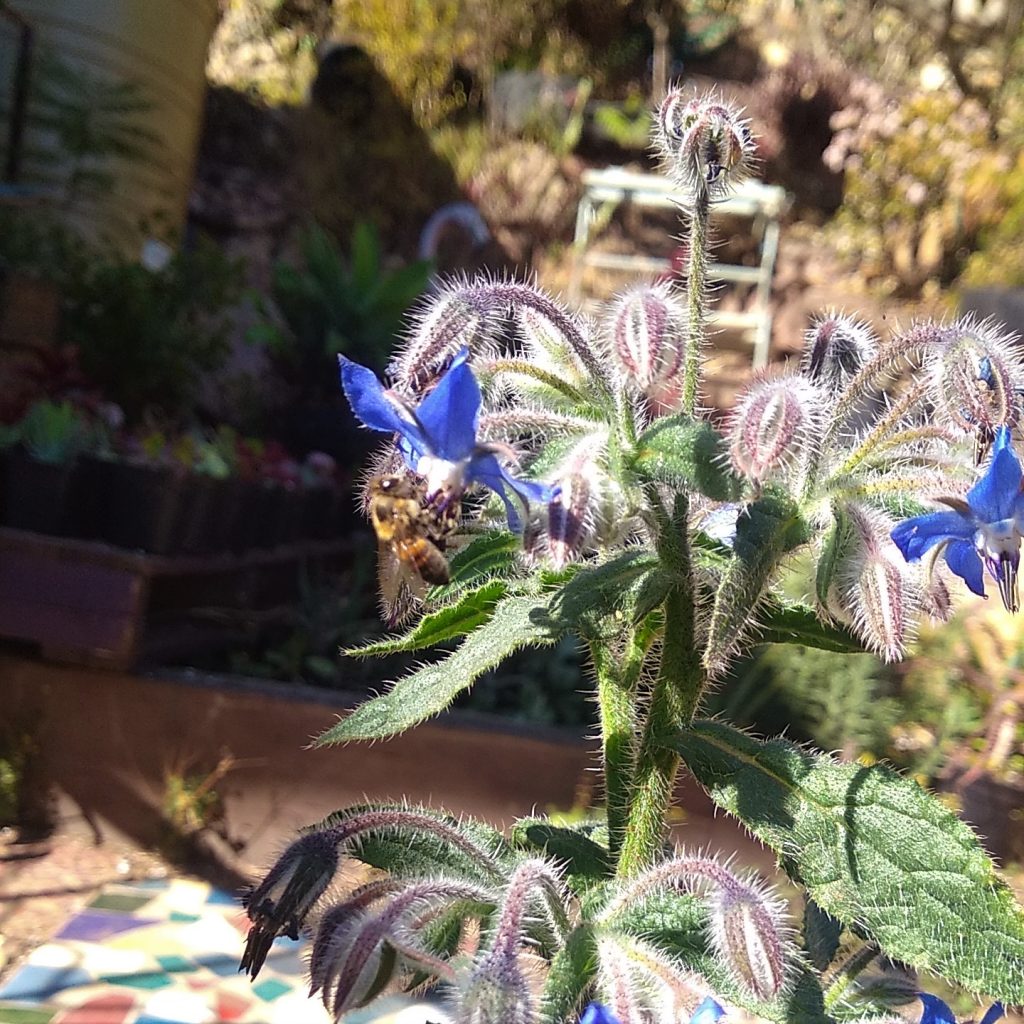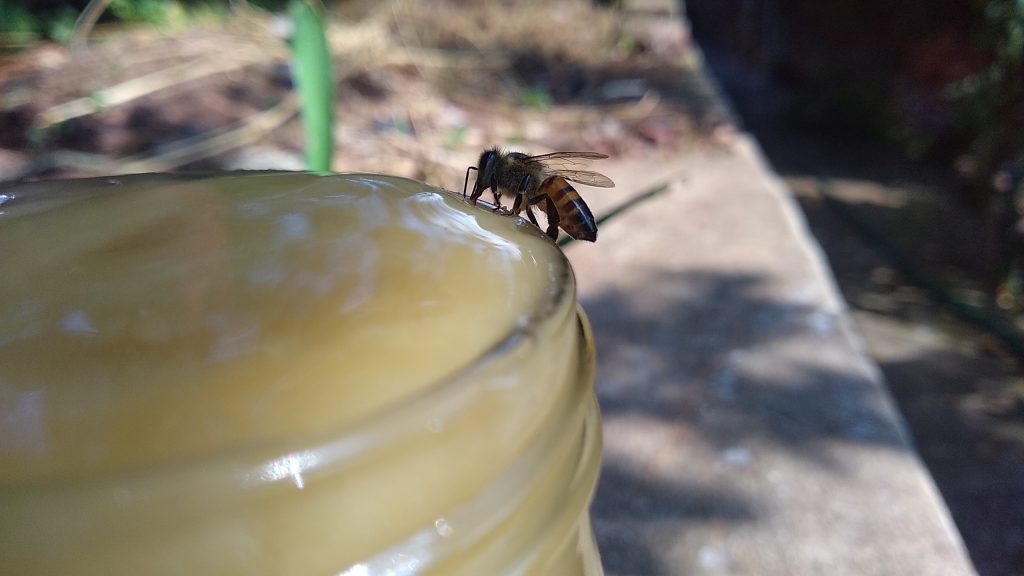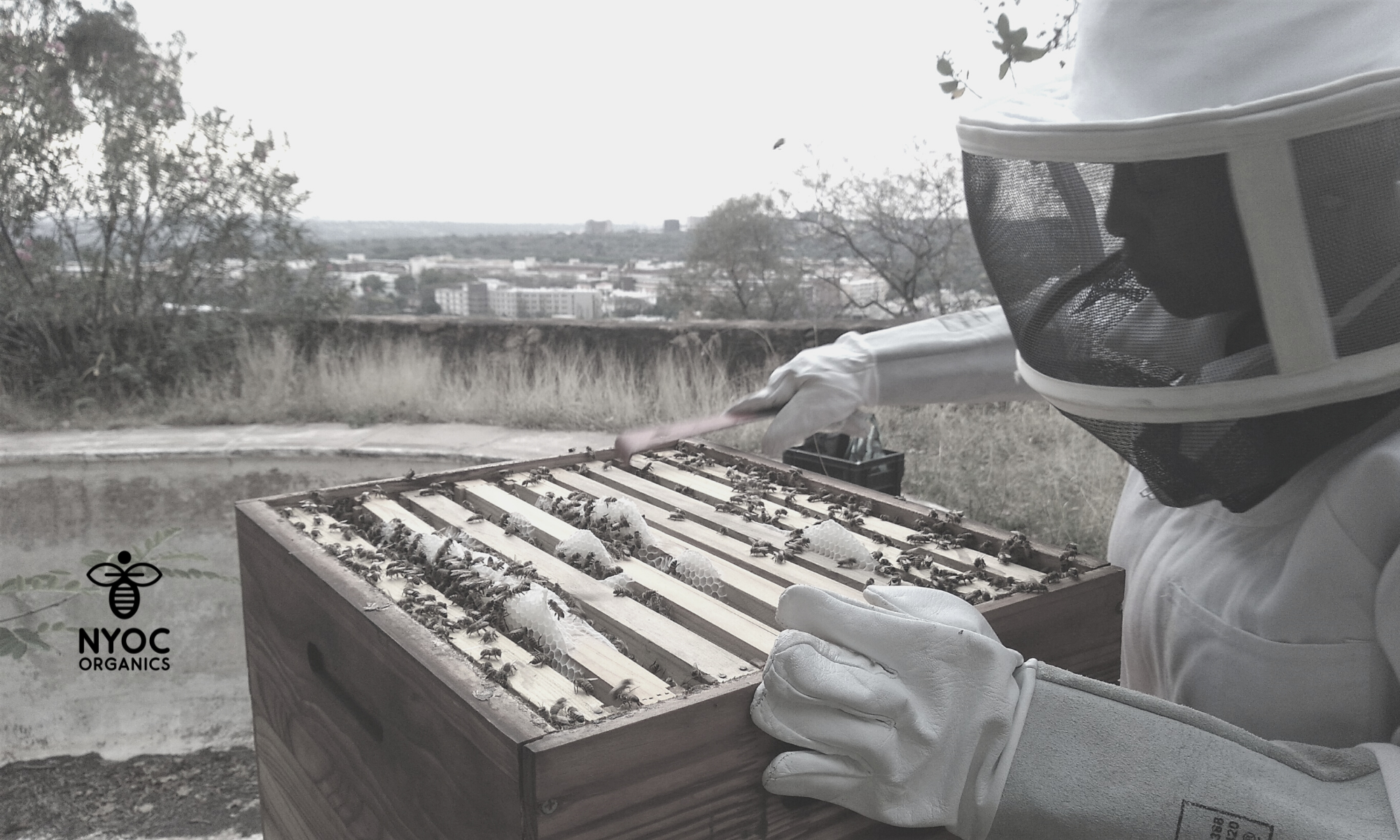
Urban beekeeping entails placing active beehives in areas zoned as urban such as city rooftops or residential backyards. There a number of reasons why this form of beekeeping is an attractive option for some beekeepers.
Food Sources
Bees, like any living organism, live off a particular diet designed by nature. Bees rely on pollen from flowering plants to satisfy their protein, fat, mineral and vitamin requirements, while nectar provides their carbohydrate intake (and as well as being the key ingredient for honey production). Johannesburg’s urban/suburban areas, for example, provide a buffet of nectar and pollen sources for bees all year around thanks to the forward thinking urban planning systems of the past which brought about the prolific planting of trees. Present day homeowners in certain areas have maintained well kept, flourishing gardens.

Honey Production
Based on the perennial nature of flowering plants in the context of the urban areas we operate in, in relation to colony productivity, we receive larger volumes of honey per season compared to our hives in more remote (farm) areas. Furthermore, urban honey is of exceptionally high quality, varies in taste and flavour and changes according to the time of season.
Proximity
With NYOC primarily operating out of Johannesburg, urban beekeeping allows for greater proximity to our hives for monitoring, maintenance and harvesting within a 30km radius. Transport costs are drastically reduced while our carbon footprint is equally lessened.

Biodiversity and Conservation
Strong and healthy bee colonies doing what they do best i.e. pollinating plants is critical to maintaining biodiversity and ecological systems that ensure our planet stays alive. Urban beekeeping plays an important role by providing safe and conducive environments for bees to thrive. Our hives are routinely checked (thanks to proximity) and not moved around for commercial hire such as pollination services.
